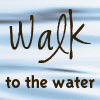African Well Fund Launches Sixth Annual Bono's Birthday Well Fundraiser
The African Well Fund is launching its sixth annual Bono's Birthday Well fundraiser on March 17th. Called "Walk to the Water... Walk with Me," the fundraiser aims to raise money in honor of Bono's May 10th birthday. Details of the project funded by this year's donations will be announced shortly.
Last year, over $34,000 was raised during the Bono's Birthday Well drive. Those funds were used toward projects at several schools in Uganda implemented in partnership with Invisible Children and Africare. These projects are currently underway.
To donate to Bono's Birthday Well, visit our fundraiser page here. A virtual birthday card will be available for donors to send their wishes to Bono. The card will be sent to Bono via Principle Management. Donations will be accepted March 17th through May 10th.If you would like to get involved in spreading the word on Bono's Birthday Well, flyers are available for download here. Images and avatars are also available to use on any of your Web sites or forums. You can also add African Well Fund to your Myspace or pages
The African Well Fund believes that clean water is a Basic Human Right! Please help us in our mission to extend that right to all.
I'd like to meet:
Please sign the online petition @ www.ONE.org
Music:
Water Stats and Facts
Gender, Water and Sanitation
This policy brief, , prepared by the UN Interagency Task Force on Gender and Water, provides an excellent overview of the issues of clean water and sanitation. You will find information about the involvement of women in water and sanitation management in developing countries The document also lists the key issues that need to be addressed for a “gendered†approach to water resource management and makes recommendations for action.
The African Well Fund recognizes this gendered aspect of the provision of clean water and sanitation. Our
Ten Miles in her shoes program is meant not only as a fundraising program but also as a means to raise awareness of the unique role that women play in water resource management.
Water FactsThough we use it constantly, we think very little about water and its place in our lives. Here are some water facts to ponder:
More than half of Africa's people lack access to safe drinking water (UN)
Of all the renewable water available in Africa each year, only 4% is used -- because most Africans lack the wells, canals, pumps, reservoirs and other irrigation systems (Africare)
In developing countries, one person uses an average of ten liters of water per day. In the United States, one person uses an average of 75-80 gallons in the same time period (http://www.epa.gov/)
Each flush of the toilet uses the same amount of water that one person in the Third World uses all day for washing, cleaning, cooking and drinking (www.whrnet.org).
In the past ten years, diarrhea has killed more children worldwide than all the people lost to armed conflict since World War II (Water Aid)
Twelve million people die each year from lack of safe drinking water, including more than 3 million who die from waterborne diseases (WHO)
Over 80% of the disease in developing countries is related to poor drinking water and sanitation (WHO)
1.5 billion people in the world are suffering from parasite infections, which can cause malnutrition, anemia and delayed growth, due to the presence of solid human waste in the environment. Many of these infections could be controlled with improved hygiene, clean water and sanitation. These (www.whrnet.org).
The average distance a woman in Africa and Asia walks to collect water is 6 km (3.75 miles) (www.whrnet.org)
The weight of water that women in Asia and Africa carry on their heads is equivalent to the maximum baggage weight allowed by airlines – 20 kg, or 44lbs (www.whrnet.org)
Women are the primary caretakers for those who fall ill from water-related diseases, reducing their time available for education and productive economic efforts (http://www.unfpa.org)
One-third of women in Egypt walk more than an hour a day for water; in other parts of Africa, the task can consume as much as eight hours (www.unfpa.org)
Medical research has documented cases of permanent damage to women’s health as a result of carrying water, such as chronic fatigue, spinal and pelvic deformities, and effects on reproductive health including spontaneous abortion (http://www.unhabitat.org)
In some parts of Africa, women expend as much as 85% of their daily energy intake on getting water, increasing incidences of anemia and other health problems (www.unhabitat.org)
Books:
The Bible, The Essential Writings of Martin Luther King, Jr., The Autobiography of Martin Luther King, Jr, Bono in Conversation, Killing Bono, How the Irish Saved Western Civilization, U2 At the End of the World, No One Here Gets Out Alive: The Biography of Jim Morrison, U2 by U2.
Heroes:
My son Brandon and the other children I have met through Children's Hospital of Philadelphia and Voorhees.Others: My parents, Dr. Martin Luther King, Jr., Nelson Mandela, Bono, Sir Bob Geldoff, Charlize Theron, Aung San Suu Kyi and my bestest friend Susan!
| View | Add Favorite
